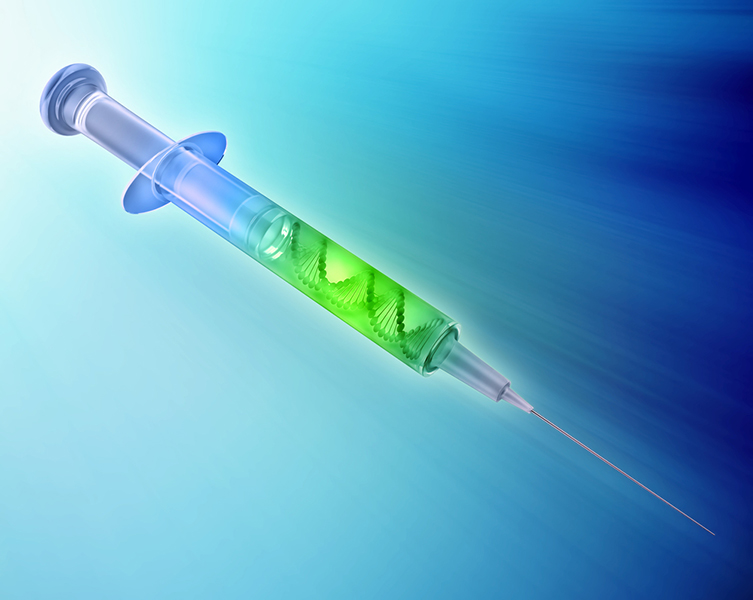
2nd June 2016 First gene therapy for children is approved in Europe Strimvelis, a gene therapy for a rare immune deficiency, which is also the first gene therapy for children, has been granted regulatory approval by the European Commission (EC).
Adenosine deaminase deficiency (ADA-SCID) is a very rare disorder caused by a faulty gene inherited from both parents. This faulty gene stops the production of an essential protein called adenosine deaminase (ADA), which is required for the production of lymphocytes (a type of white blood cell). Children born with ADA-SCID do not develop a healthy immune system, so cannot fight off everyday infections, which results in severe and life-threatening illness. The disorder often proves fatal within the child's first year of life. ADA-SCID is so rare that it is estimated to occur in just 15 patients per year in Europe. Thankfully, hope is now arriving in the form of a breakthrough new treatment. British pharmaceutical company GlaxoSmithKline (GSK) – in partnership with Fondazione Telethon and San Raffaele Hospital in Italy – have announced a life-saving gene therapy known as Strimvelis. After more than 20 years of research and development, the European Commission (EC) has just granted regulatory approval of this medicine. Strimvelis will be the first corrective gene therapy for children anywhere in the world. It is recommended for the treatment of patients with ADA-SCID for whom no suitable human leukocyte antigen (HLA)-matched related stem cell donor is available. Martin Andrews, Head of the Rare Disease Unit at GSK, commented: "Today's approval is the result of many years' work with our collaborators in Milan and is the next step towards bringing life-changing treatment to patients with ADA-SCID and their families. This is the start of a new chapter in the treatment of rare genetic diseases. We hope that this therapeutic approach could also be used to help patients with other rare diseases in the future." The decision to approve was based on data collected from 18 children. A 100% survival rate at three years post-treatment with Strimvelis was observed for all children in the pivotal study and every child receiving the treatment who contributed to the data package is alive today, with a median follow-up duration of approximately seven years. Full results of the analysis were published recently in the journal BLOOD1. Strimvelis is only administered once and does not rely on a third-party donor, so there is no risk of immune incompatibility causing rejection, which is a common side effect of bone marrow transplant treatments. With Strimvelis, the patient's own bone marrow cells are removed, and a vector is used to insert a normal copy of the ADA gene into the cells. This step is known as transduction. The gene-corrected cells are then re-introduced to the patient through an intravenous infusion, after which some of the cells home back to the bone marrow. Professor Alessandro Aiuti, Clinical Research Coordinator in a joint research collaboration between Fondazione Telethon and San Raffaele Hospital, said: "We are delighted with today's news, which marks the culmination of more than 20 years of research and development. This innovative and individualised treatment approach uses a patient's own gene modified stem cells to correct the root cause of the disease. It has been gratifying for all of us to see patients affected by this severe immune deficiency growing over the years, being able to play with other children and then going to school. Working alongside GSK, we can now make Strimvelis available to ADA-SCID patients and transform the lives of children who so desperately need it." ---
Comments »
|







